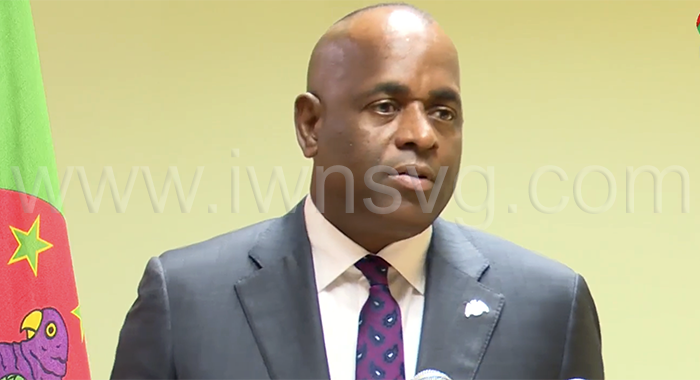ROSEAU, Dominica (CMC) — Dominica’s Prime Minister, Roosevelt Skerrit said that the five Organisation of Eastern Caribbean States (OECS) with a citizenship by investment programme (CBI) met last week to further discuss the programme amid some concerns being raised by the United States.
The five OECS countries with a CBI programme are Antigua and Barbuda, Dominica, Grenada, St. Kitts and Nevis and St. Lucia.
Under the programme, foreign investors are granted citizenship of the island in return for making a substantial investment in the country’s socio-economic development.
Last weekend, the CBI programme was discussed in St. Vincent and the Grenadines during both the OECS Assembly and the meeting of OECS leaders, with Prime Minister Dr. Ralph Gonsalves, who has insisted that Kingstown would not be part of the initiative, assuming the chairmanship of the nine-member grouping.
Asked by reporters whether or not Gonsalves, as the OECS chairman, would be able to articulate the position of the member countries with CBI programmes, Prime Minister Skerrit told reporters, “… certainly he would not be speaking on behalf of the countries with the CBI programmes.
“We have our own grouping … we had a meeting on Friday evening, a very constructive meeting and we were able to address a number of policy issues so that the draft legislation can be proceeded with”.
Skerrit said that the intention is to share that draft legislation with the general public and the various stakeholders, adding, “… we speak on the CBI programme and we shall speak on our own behalf and I think we have the ability to speak very clearly”.
Skerrit said most of the issues raised by the United States over the CBI programme “ are being addressed through the establishment of an Independent Regulator Authority (IRC)”.
St. Kitts-based Eastern Caribbean Central Bank (ECCB) is responsible for monetary stability and safeguarding the banking system in the Eastern Caribbean Currency Union (ECCU), and while the ECCB regulates financial institutions licensed under the Banking Act, a new regional regulatory body is being established to oversee CBI programmes.
This new entity, tentatively called the Citizenship by Investment Commission, will be an independent regulator for CBI programmes across the ECCU.
Earlier this month, the ECCB Governor, Timothy N.J. Antoine, identified “political support” as being critically important for the successful establishment of the regional regulator for the five OECs countries.
Antoine, addressing the St Kitts & Nevis Investment Gateway Summit in Basseterre, Antoine, who currently serves as the IRC chairman, said that, in the past three months, consultations have taken place with all the stakeholders in the CBI industry, including governments, leaders of opposition, local agents, developers, financial intelligence units, and
“I want to be very clear: we took a deliberate step. It required us to travel and engage in an intense schedule, but we did not want to draft (a legal framework) before we engaged you,” Antoine said then, adding that “our preparation has been enriched by what you have shared with us”.
Antoine said consultations had also been held with international partners, including the United States, the United Kingdom, and the European Union, as well as with regional attorneys general.
“We have now submitted our second draft to our heads, our prime ministers,” he said, adding that the plan is to share the draft with CBI stakeholders this month for their review and comments, and to finalise it by the end of July before making a final submission in early August.
“Our IRC’s deliverables are a draft agreement and bill, which we have now submitted; a list of policy issues, which we have also submitted; and a risk assessment and protocols, which we are working on and will submit once finalised,” Antoine added.
The RIC will set common standards covering due diligence, marketing, outsourcing, stakeholder engagement, and other important aspects of the CBI industry; monitor and enforce compliance with the standards; and engage stakeholders locally, regionally, and internationally.






